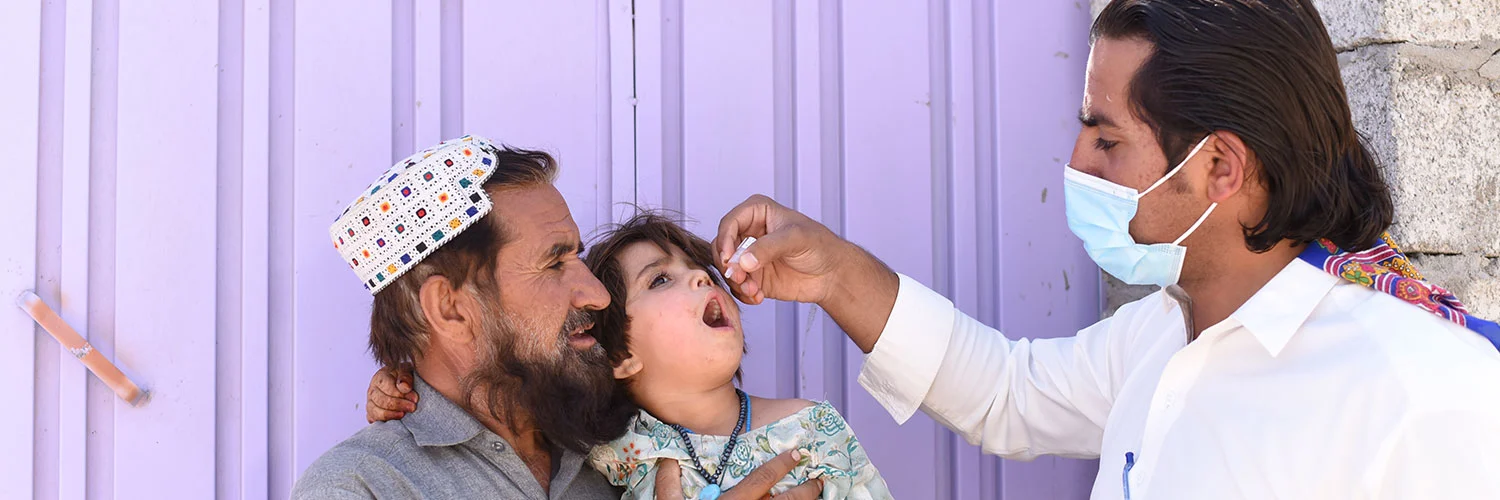ISLAMABAD, MAY 07, 2023 – The National Emergency Operations Centre gave a briefing to Global Polio Eradication Partners and Donor countries and agencies on the current state of polio eradication efforts.
Speaking to country representatives and global polio partners, Federal Health Minister Abdul Qadir Patel said the children of Pakistan need more support at this time when the end of polio seems possible. “Polio is the only Public Health Emergency of International Concern and a priority at all levels of government, from the Prime Minister's office to the health ministry and district administrations. This year, Pakistan aims to interrupt wild poliovirus transmission, as envisioned in the global eradication strategy,” he said.
“In this crucial time, the continued support of our donors and partners is critical to sustain our efforts and momentum,” the Minister added.
The meeting came a week after the Technical Advisory Group for Polio Eradication met in Qatar to assess the current epidemiology and guide programme strategies in the coming months.
Representatives from donor countries reaffirmed their commitment and said it was because of years of support to global polio eradication efforts that 99% of the world is now polio free. More efforts need to be made for Pakistan and Afghanistan to make the final push and eliminate the disease from the world.
All human cases reported from Pakistan since 2022, including the only one reported this year in March, have been from the endemic southern Khyber Pakhtunkhwa region, while most of the country has remained polio-free for over two years.
Coordinator for the National Emergency Operations Centre, Dr Shahzad Baig, said: “This is huge progress; we are optimistic, but every child matters. One child paralysed by polio is still too many. We are working day in and day out to vaccinate children in the areas that remain challenging. We need both your support and patience.”
Speaking to country representatives, Global Director for Polio Eradication at WHO, Aiden O’ Leary, said the GPEI marked 35 years to eradication efforts in May.
“Since 1988, more than 10 billion doses of the oral polio vaccine have been given to children worldwide. Now we are left with a small number of children in only two countries, at most 250,000 – 300,000 of persistently missed children in two provinces in eastern Afghanistan and seven districts in southern Khyber Pakhtunkhwa of Pakistan,” he said.
“Despite the challenges that remain, it is entirely feasible to reach them and finally interrupt wild poliovirus transmission in the two remaining endemic countries,” he added.
Note for the Editor:
Polio is a highly infectious disease caused by poliovirus mainly affecting children under the age of five years. It invades the nervous system and can cause paralysis or even death. While there is no cure for polio, vaccination is the most effective way to protect children from this disease. Each time a child under the age of five is vaccinated, their protection against the virus is increased. Repeated immunisations have protected millions of children from polio, allowing almost all countries in the world to become polio-free, besides the two endemic countries of Pakistan and Afghanistan.
For further information, please contact:
Mr. Zulfiqar Babakhel, Media Manager, NEOC, 0345-9165937
Email: This email address is being protected from spambots. You need JavaScript enabled to view it.

